

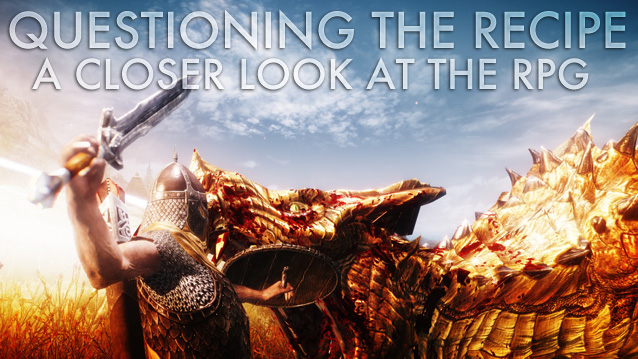
What makes a roleplaying game? The genre—at least in the realm of videogames—has become quite diluted. Games as diverse as Diablo, Deus Ex and Skyrim qualify as members of the RPG family. What do these games have in common to make them play in the same league? Do they even?
What I do not want to do here is act as the ‘RPG Police’, deciding what is and what is not an RPG. I just want to establish if and how this genre description can be made more meaningful and to explore the common features of all games listed under this label.
There’s more to RPGs than character stat metagames. The world must be fairly free to explore, with things to discover, pick up and use.The thing is, those games that don’t fit into the mold aren’t necessarily bad RPGs or un-RPGs, they just belong to an adjacent genre. The more radically different games are found under the same label, the harder it gets defining the label as it is, and the need for new descriptions arises. “I like playing RPGs” doesn’t necessarily mean the player uttering that phrase likes all games found under that label as it is.
The central mechanic of all members of the RPG family is a meta-game of statistics representing the player character and in many cases everyone else in the game world. It’s a meta-game level that more or less surprisingly a lot of other adjacent game genres have taken up in recent years, be it Assassin’s Creed or Call of Duty. Experience can be earned and new game verbs can be unlocked through ‘experience points’.
There’s more to RPGs than character stat metagames. The world must be fairly free to explore, with things to discover, pick up and use. I would argue it’s these two elements that are the required minimum, since they are at some abstract level the ones that make up Diablo and other similar dungeon crawling RPGs.
However, is that sufficient for all kinds of roleplaying games? The Diablo example—and by extension World of Warcraft—is very superficial. A gamer who likes playing Diablo-likes might not enjoy playing ‘meatier’ RPGs like Planescape: Torment or Fallout quite as much.
Character development is also an essential part of the RPG mixture. RPGs not only have a more fleshed out player character than your typical game, they also offer customizability to suit the player's preferences and give players some freedom on how to interact with the world. At least, most games from the genre do. With Diablo-likes in mind, that isn’t necessarily true of all the RPGs. Character interaction, with dialog trees and usually some kind of game system that determines a sort of social standing and reaction towards the player character, is a staple of most RPGs.
Once again, this is not necessarily something all games labled RPGs feature. And it’s something that can really differ to a big degree between individual games, if this feature is present at all. This is a layer that is most prominently featured in most of the titles from BioWare, which usually are quite heavy on character interaction.
One of the best indicators to the fragmented nature of the RPG recipe is BioWare's announcement to have their upcoming Mass Effect 3 feature options to tweak the game to a certain playstyle from the get go. Mass Effect 3 will allow the player to opt out of the character interaction all together, making Mass Effect 3 a game that can be any kind of RPG a player might want.
That said, the Mass Effect series is an interesting example in regarding the nature of the genre to begin with, since the games are far removed from any previous standards that defined roleplaying games. They feature a lot of character interaction, as mentioned above, yet the combat is very action oriented, making the game more of a slightly customizable shooter as far as violent conflict is concerned.
Even more interesting in that regard are the ‘true hybrids’ like the Deus Ex franchise, which are essentially highly customizable shooters with character interaction and freely explorable game worlds attached. Yet those games also bear the label ‘RPG’. Deus Ex, Vampire - The Masquarde: Bloodlines, and even the STALKER games to some extent get mixed into the genre, further muddying what the definition of 'RPG'.
Branching stories and fully, freely explorable game worlds are a nice thing to have for an RPG trying to appeal to my taste, but they don’t seem to be a main staple of the RPG recipe.What do these games have in common with Diablo? What is the basic RPG formula? One important factor is loot. Almost across the board, RPGs have (mostly dead and sometimes living) nonplayer characters drop items that can be salvaged and used by the player. Some games have a heavy loot component, while others offer less. Almost all RPGs have customizable characters that can be customized in appearance and game mechanics to suit a certain play style. This varies from title to title, but there are few games in the genre that don’t allow this. Almost every single RPG features loot, as well as customizable game verbs like weapons and spells. With this we might have boiled down the formula enough to get an idea of what a baseline RPG is actually about.
Branching stories and fully, freely explorable game worlds are a nice thing to have for an RPG trying to appeal to my taste, but they don’t seem to be a main staple of the RPG recipe. Character interaction also isn’t necessarily a must when cooking up an RPG, however it’s something that very many examples have to offer.
The question at hand is thus: which games actually fit that description? Do these things suffice to establish a game as “true” RPG?
Interstingly, most of these points are valid only for western RPGs. Japanese RPGs are a genre that is adjecent to “other” RPGs, but differs in so many key aspects and has so many rules and staples that only apply to that very genre, that they truly exist in a class of their own.
It is worth noting that I haven’t even touched upon story so far. Ideally—for me anyway—RPGs are games that don’t necessarily lay out a story in front of the player, but have the player establish an individual story within the narrative as the game is played, thereby differentiating RPGs from multi-branching adventure games. Story and storytelling are usually a strong ingredient in the genre, however the ways of implementing that differ so much from title to title that I don’t think it’s a factor worth pinning down.
With that, I think we can see that the RPG genre label is a big and potentially misleading one that desperately needs a breaking up into several sub-genres, since ‘RPG’ as it is, says very little about how any given RPG actually plays like. And that is quite contrary to what a good genre label should do.
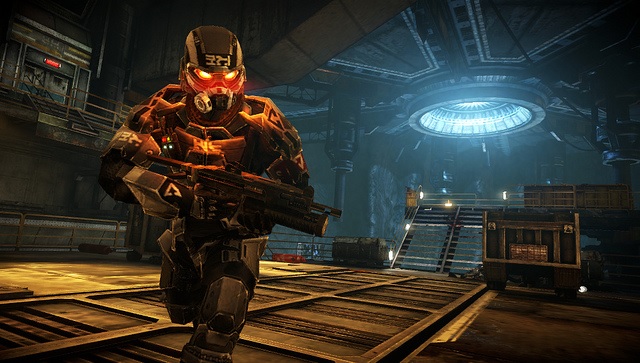


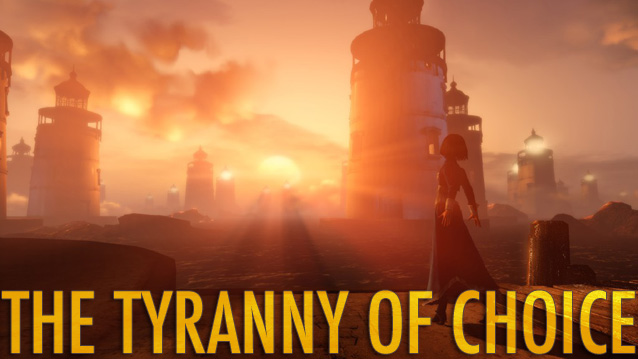
 Tony Hawk’s Pro Skater HD Walkthrough
Tony Hawk’s Pro Skater HD Walkthrough Weird Room Escape Walkthrough
Weird Room Escape Walkthrough Nym’s Nightmare – Walkthrough [with Explanations]
Nym’s Nightmare – Walkthrough [with Explanations]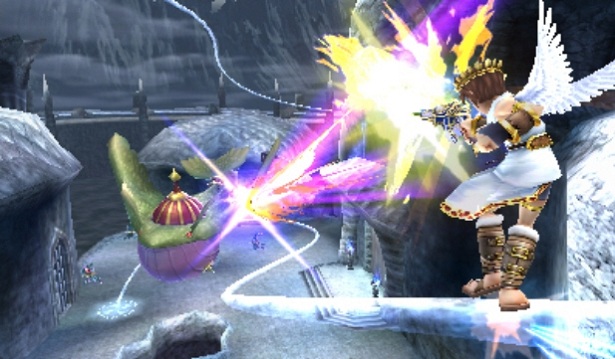 Kid Icarus: Uprising Walkthrough
Kid Icarus: Uprising Walkthrough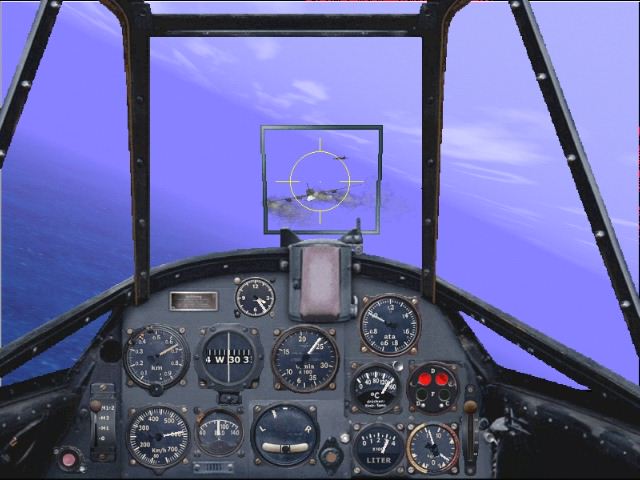 4 Great Flight Simulators From A Forgotten Gaming Genre
4 Great Flight Simulators From A Forgotten Gaming Genre